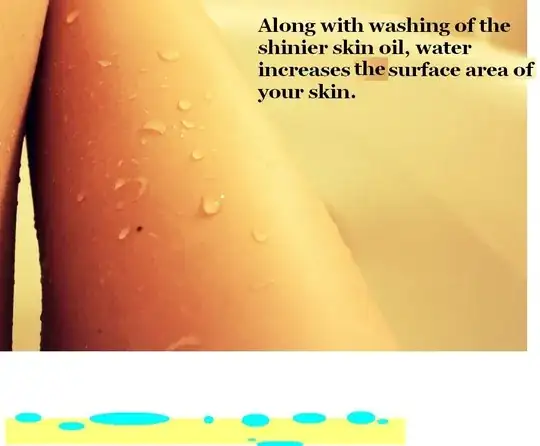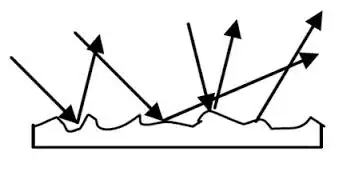Is there actually any evidence that being in water increases your risk of getting sunburn? I suspect that this inference confuses correlation with cause.
On brilliant sunny days you are more likely to strip off and get in the pool or go to the beach to cool down. If swimming or diving you are unlikely to wear a sunhat. More of your skin (especially the paler parts) is exposed to UV, and there is no or little shade. You might remain in this environment for a few hours, cooled by the water and distracted by playful social activity and ice-creams. The cool water might also soothe the onset of sunburn, masking the warning signs (a point made by @JohnRennie in Why does wet skin sunburn faster?). (On the other hand, the same cooling effect should reduce sunburn.) If you were to lie on a sunbed instead for the same amount of time, you would probably have a greater risk of sunburn.
If instead you decide to go for a walk or cycle ride, play tennis or sit in the beer garden, you are likely to be wearing at least a T-shirt and a sun hat, and to have some shade from trees or a parasol.
Because of these factors, sunburn is more likely to occur at the beach or outdoor pool than when doing other activities, thus giving the impression that water increases the risk. I think it is the other factors, rather than the water, which causes the sunburn. Sunburn acquired while sunbathing between dips in the water might also be attributed to the water.
According to the WHO website, the reflection of UV from water is not significantly different than from grass or soil (http://www.who.int/uv/faq/whatisuv/en/index3.html). Reflection from still water can be high at grazing incidence, near sunrise or sunset, but the sunlight is significantly less intense at these times. You are far more likely to be in the pool around mid-day, when the sun is overhead. (Waves could bring some water near grazing incidence.) The largest reflection would come from white foam or sand.
The focussing effect of water droplets would only concentrate incident UV into local burn spots; they do not capture extra UV or increase the total amount incident on the skin. They are soon washed away or evaporated. The skin is hydrophilic, so droplets do not remain on it. The surface of hair is naturally hydrophobic, but after bleaching (eg in strong sunlight) becomes hydrophilic.
I think the main effect of the water itself is (as you suggest) that your sun-block gets washed off (if not waterproof) or rubbed off as you get dried between dips.


